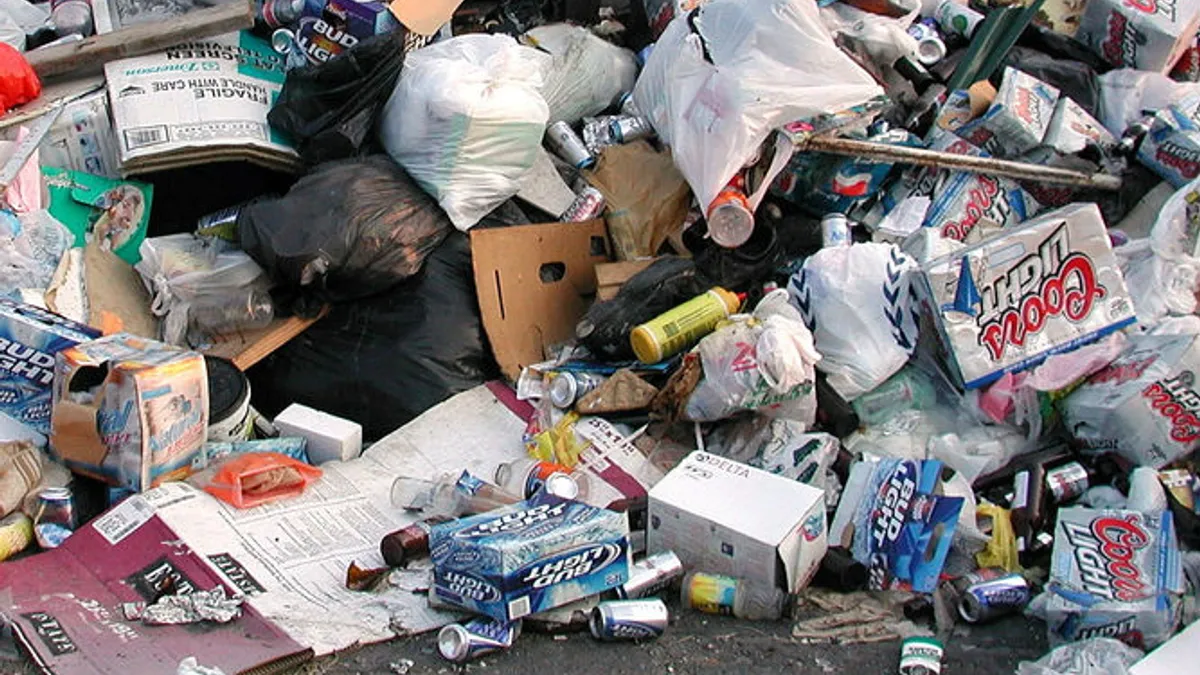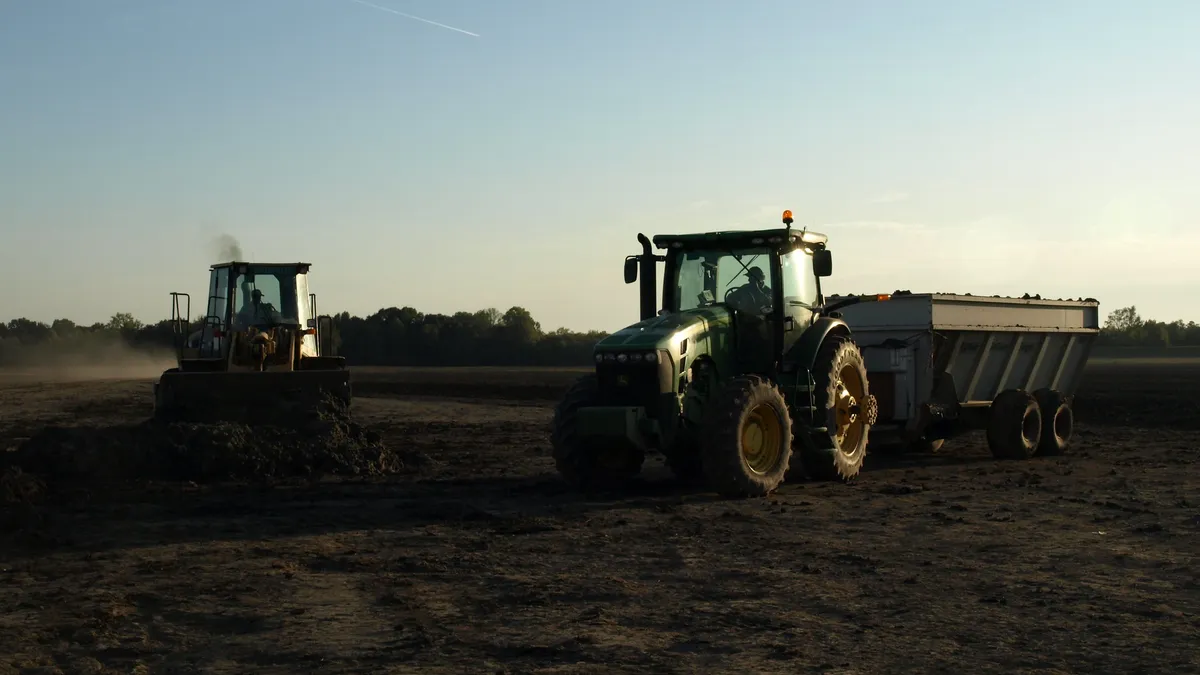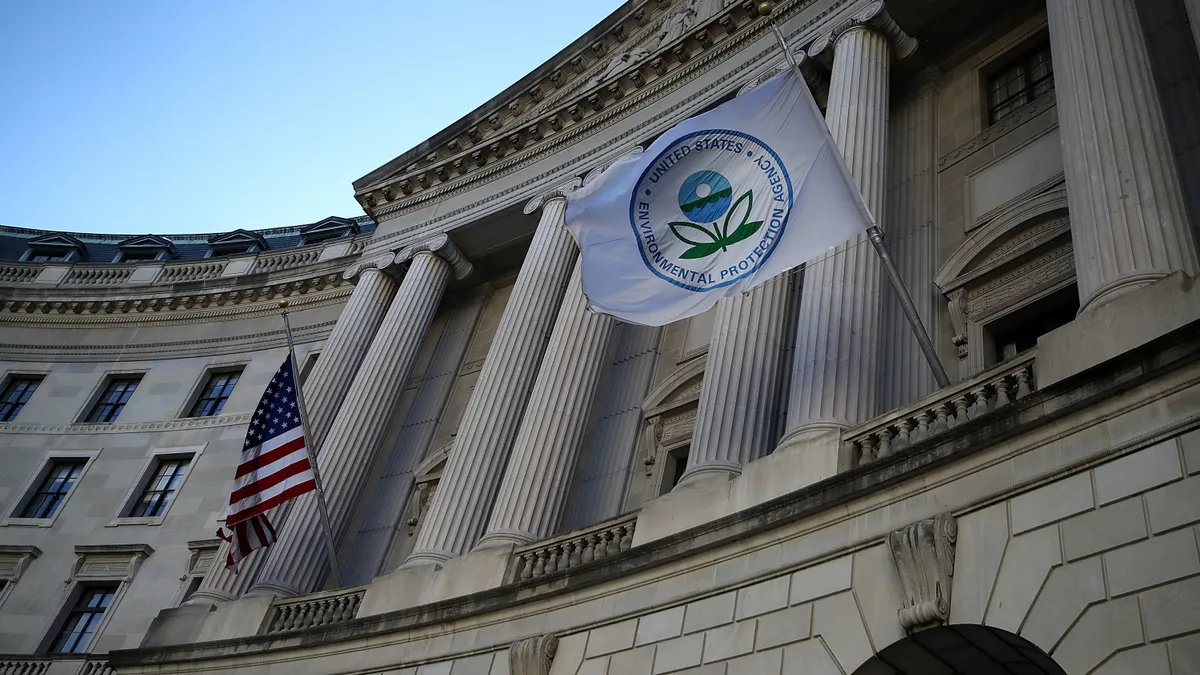In case you missed it: Thoughtful, newsworthy comments from industry professionals, consumers, and legislators.
"Landfills are not bad. I'll repeat that: landfills are not bad."
— Patrick Sullivan, senior vice president of SCS Engineers, during a WASTECON session titled "The Great Food Waste Debate." During this debate, Sullivan defended the use of landfills, stating that modern technologies installed in today's landfills provide the cheapest method of disposing organics in an environmentally-responsible manner.
"One of the big questions we have is not just who’s going to win the presidential election, but what their cabinet's going to look like."
— Andrew Harig, senior director of government relations for the Food Marketing Institute, regarding how the 2016 presidential election will affect the waste industry. In a recent poll Waste Dive asked readers to select which presidential candidate would be best for the future of waste and recycling — and the results showed the respondents preferred Hillary Clinton.
"When a woman is selected in any industry, she's in that position because people trust her. They trust her expertise."
— Amanda Pratt, director of communications at Rumpke, in an interview for Waste Dive's Women in Waste series. Pratt explained that, despite only being one of two female executive at Rumpke, she has always been treated fairly and placed on a level playing field as her male colleagues.
"There is always going to be food waste in solid waste because at the end of the day you can only scrape so hard."
— BioCycle Editor Nora Goldstein in a WASTECON session titled "Focus on Food Waste in Organics Recycling." Goldstein touched on the evolution of food waste recycling in the U.S. and noted the challenges and solutions surrounding the processes.
"Walking out your house every day and seeing all of your stuff, all of your baby's stuff, all of the things you've accumulated over the years, adds that extra amount of stress and pressure."
— Baton Rouge, LA Metro Councilwoman Tara Wicker to The Advocate regarding the recent and disastrous floods in Louisiana. Officials have estimated that the debris cleanup may take months.
"We share the planet and we have no barriers in the planet, everything is connected … We have 2 billion tons of municipal waste around the world … The way we deal with this waste at the local level impacts global procedures, global markets, and the production and distribution of several materials. We have to think about how actions locally have an impact on the global level or else we wont have a planet much longer."
— Carlos Silva, executive director of Abrelpe Brazil, during a discussion on the global trends of waste management. Silva took the stage at WASTECON with SWANA CEO David Biderman and other representatives from the U.K. and Argentina to discuss how waste management is evolving on a global scale.









